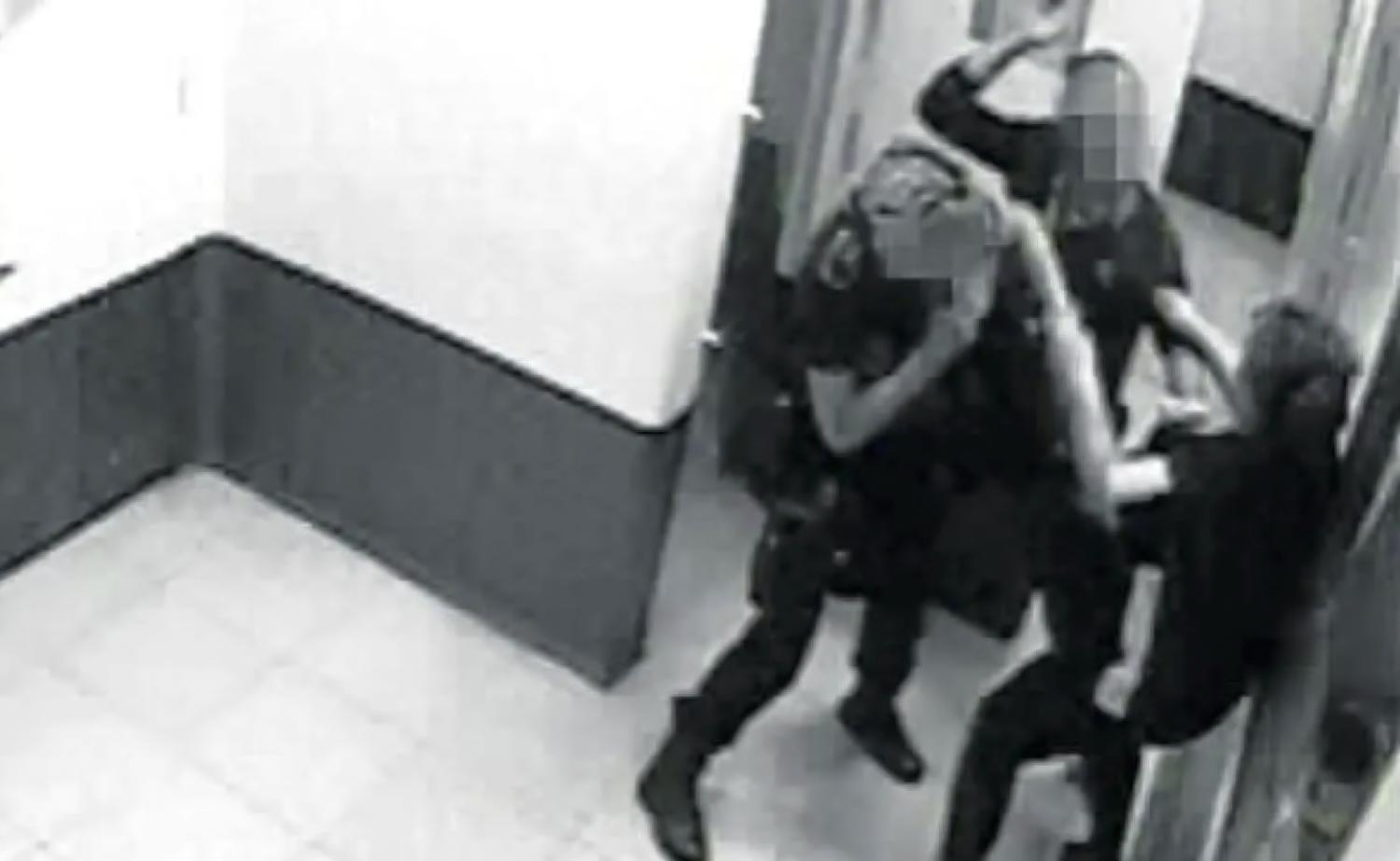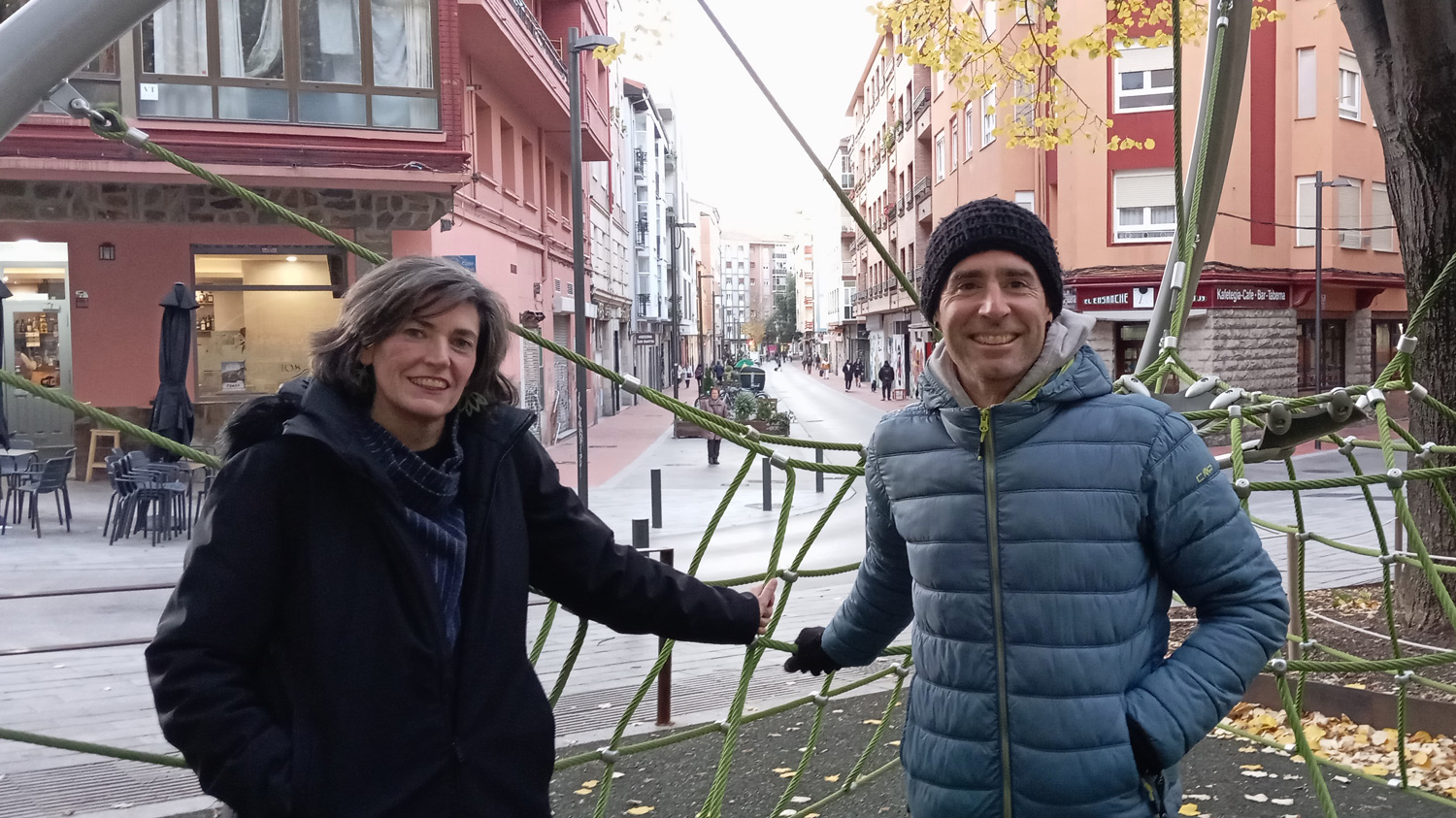Shopping is a nightmare for Roma women
- The criminalisation practices of AMUGE have been recorded on numerous occasions in a study carried out by the AMUGE association in supermarkets and shopping centres in Bizkaia. They wanted to make known the public humiliations that are being experienced on a daily basis, in order to denounce the legal and social helplessness that is being encountered.

Imagine you're going to the supermarket with your sister. As soon as they entered, they watched with mistrust and whispered. Then you realize that a worker follows you, hallway to hallway. Upon arriving at the perfume shelves, he has asked for megafony reinforcements. Then, when you went to the charcuterie, you took the ham off the counter. You've been in the store for just 20 minutes, but the workers are getting more and more nervous. "Are you still here?" he asked each other. This nightmare scene is the daily bread for Roma women, according to the AMUGE association. An investigation has been organised to publicise criminalisation, which is systematic.
Visits to 15 supermarkets and five shopping centres in Bizkaia have been organised between 26 October and 15 November. Following the Testing methodology, two volunteer groups of the same age group and number have been integrated simultaneously in each establishment: one composed of gypsy women and the other of white women. Independent observers have also been incorporated with them as moral witnesses. They have looked at, tested and bought the products naturally. Discrimination against Roma has been observed in 16 of the 20 establishments visited, accounting for 80% of the sample. Moreover, every day of the visits and audio and video there have been incidents against the fourteen gypsies and gypsies who have participated in it. Harassment has been the most repeated practice of criminalisation, but also oral accusations, gossip and offensive comments, expressions of nervousness and requests for reinforcement. When the participants entered the locker rooms of a well-known clothing store, the merchant only passed through the scanner the bag of the Gypsy volunteer.
Journalist Goizalde Landabaso has participated as a moral witness in testing. In a supermarket in Bilbao, the City Council of Bilbao has taken the following observations: “From the very beginning they had a worker behind them. The gypsies where they go, the workers who work there. At one point, one worker told others to turn around to see if something was missing.”
The problem is not only that workers can have prejudices against the Roma, but that they are given instructions to spy on the Roma explicitly.
However, white volunteers were able to shop in all the stores with complete peace of mind. Moreover, there is more than one who claims to be ignored, as the attention of all workers was focused on Roma women. The vendor of a cosmetic store, looking at the Gypsy volunteers, told an observer: “Excuse me, I can’t take care of you well, you’ve come to mix.” “Privileged to see the difference in treatment,” a white volunteer wrote when leaving a supermarket, “How did you feel?” when it comes to answering the question.
In the study, Sheila Aguilar, partner of AMUGE, has participated in two days and has not been taken as a surprise with the treatment received. “We live it every day. They harass us from a young age. Shopping is stressful. That’s why we prefer to go only to the small market, where we can walk quiet and free.” Getting used to doesn't mean it's not painful. Gypsy volunteers have declared that they have felt in testing "the rage, helplessness and shame they live in reality."
Legal indefension
Testing is an empirical proof of discrimination that was developed to make the policies of racial segregation visible in public establishments in the United States in the 1950s and 1960s. It is basically a question of comparing the treatment received by groups of similar people, the only difference between them being the axis of discrimination to be analyzed: gender, racial or ethnic origin, disability, etc. Since then, it has been used both in social research and in activism in Europe.

The French association SOS Racisme, with extensive experience in conducting public and judicial complaints based on this methodology, proposed in 2011 to several European institutions the organization of testing in a festive atmosphere the same night. Thus, from 4 to 5 March of that same year, SOS Racism Bizkaia organized visits to the bars of Urkijo and Mazarredo in Bilbao: a white couple entered each bar and then three racialized couples from different origins, all men. The performance of the gatekeepers was discriminatory in eight of the nine pubs, especially with the Maghreb couples. In some nightclubs racialized couples were refused entry with excuses, such as private parties, and in others immigrants were only charged for entry. Since then, SOS Racism de Bizkaia and Gipuzkoa have used this methodology to make public the discrimination that occurs in real estate, discotheques and jobs on the Internet.
In October 2019, AMUGE publicly denounced what happened at the Zubiarte Shopping Centre in Bilbao: as thirteen young girls and three educators left the cinema, two security guards were harassed. Members of SOS Racism Bizkaia suggested to the association of gypsy women the organization of a testing to socialize that this criminalizing behavior is widespread.
After Zubiarte's success, the AMUGE team realized that Roma women are defenceless against this type of everyday discrimination. In fact, when they went to the network against discrimination by the Basque Government, Eraberean, these kinds of complaints told them that they had no judicial route. In other words, article 510 of the Spanish Penal Code, concerning hate crimes, does not take into account such everyday situations. “The only tool is to fill out the claims sheets, but it is useless,” said AMUGE’s head, Tamara Claveria. A complaint was also sent to the security company in which no reply was received.

The United Nations Organization found it illegal to carry out controls in public space on the basis of its racial or ethnic profile in the case of a woman named Rosalind Williams. Williams denounced in 1992 that the Walloon police only identified him on the street because he was black and during seventeen years of judicial struggle the Spanish courts rejected racist conduct. However, racist controls are rooted not only in policing but also in hospitality and shopping malls.
According to Claveria, what they intend with the dissemination of the results of the testing is to promote positive measures to prevent and avoid these daily practices in the fight against the Roma population. The problem is not only that workers can have prejudices against the Roma, but also that they are given instructions to spy on the Roma explicitly. “The training of workers and managers of shops and security companies is essential for them to have an anti-racist look,” he stressed. In addition, AMUGE wants to raise awareness among white people that, when they see the persecution of the Roma, “instead of thinking about ‘doing something’, they identify injustice and support it.”
The burden of stereotype
The tendency in the commercial sector to treat Roma women not as clients, but as suspects is the archetype deeply rooted in the collective imaginary. “It is a historical construction that responds to ideological and political interests. Creators like Miguel de Cervantes and Victor Hugo have for centuries reinforced the stereotype of thieves we are. Accusing us of crimes we have not committed is a strategy that justifies policies against the Roma population,” Claveria explained.

In testing it has become clear that traders have spared racist volunteers and made comments and gestures about them, sometimes seeking the complicity of white volunteers. “Their argument is that they have had many cases of Gypsy women who have stolen, but how many specific people do they rob in stores? They can’t know, because they don’t control the white population,” the entrepreneur said.
Evidence from Roma volunteers has shown that this public humiliation causes stress, undermines their self-esteem and limits social participation. As a young man, you know that you can't go quiet to the bolatoki or to the movies, that the best thing you can do is stay in the neighborhood. According to the head of AMUGE, the continuous prejudice that they live in school, in the world of work or in the health system leaves them few possibilities: “Give up our identity, be under the protection of white friends or internalize and fulfill the stereotype that white society has built.”
Sheila and Desi, the youngest gypsies who have participated in the testing, went to the Leioa shopping centre. After experiencing stressful situations in several cosmetic stores, they settled in a well-known clothing store. The journalist who has come as an observer and signs this chronicle has been heard by a salesman asking through an earphone that comes to the security operator. Meanwhile, he called three other salespeople and they set out to speak softly, staring at the two girls. “But why are you so nervous? "Because I can't control them," "Quiet, girl, it's not your job, they'll come soon." Three security workers have arrived in the area, one has entered the shop and the other two have stayed at the door waiting for Roma women. The surprise has been greatest when we see that voluntary people join a group of white women. Desi has stated that he has been "very disappointed" about what has been "brutally discriminated against". The next day he told AMUGE workers he had dreamed he was in jail.
The most magical weeks of the year, or rather, the most consumerist, come. Many would like to receive gifts from Olentzero's bag, as if it fell from the sky, but the reality is that at Christmas it is our bags that suffer the most, we start the year with empty pockets. In the... [+]
London 1928. At the Victoria and Albert Museum there was a very special painting: in the painting there is a black man, with wig and Levite, surrounded by books and scientific instruments. Thus it was catalogued in the Museum: “Unique satirical portrait representing a failed... [+]
We live in a context in which anti-feminist and racist hate speech at the global level is on the rise. Far-right narratives are inserted throughout the world by
social networks and political agendas. Racism and anti-feminism have become two great discursive axes that adapt to... [+]









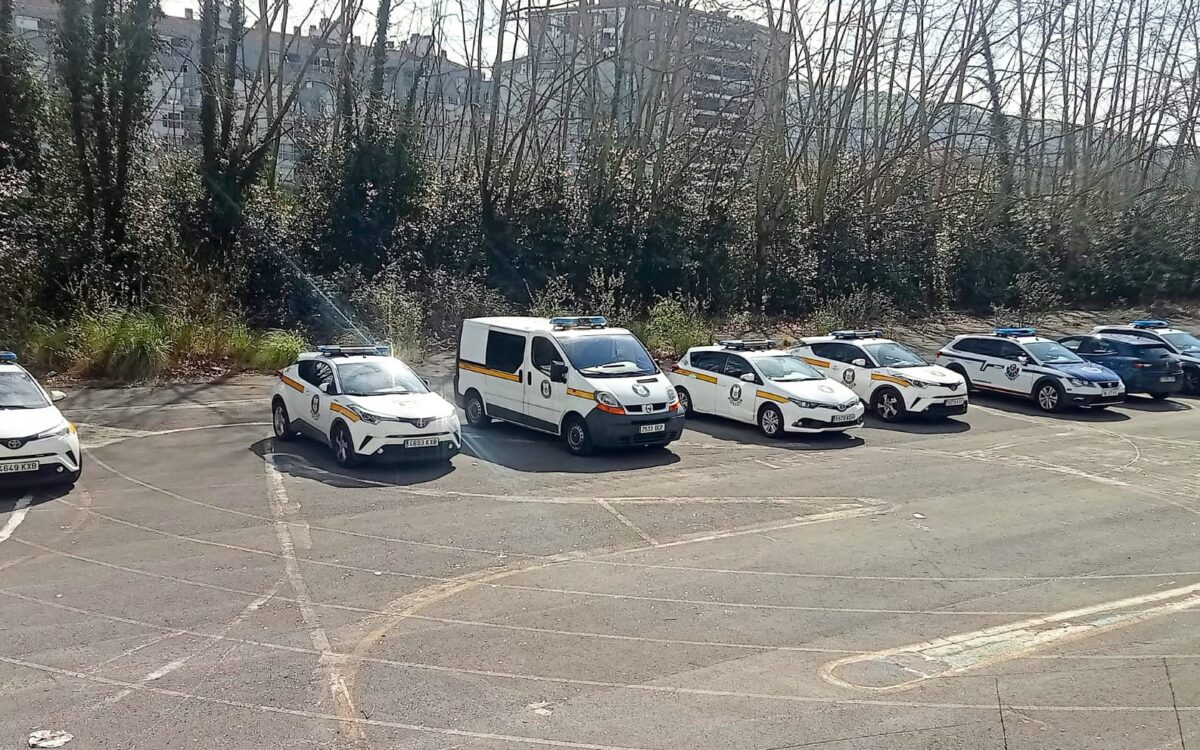
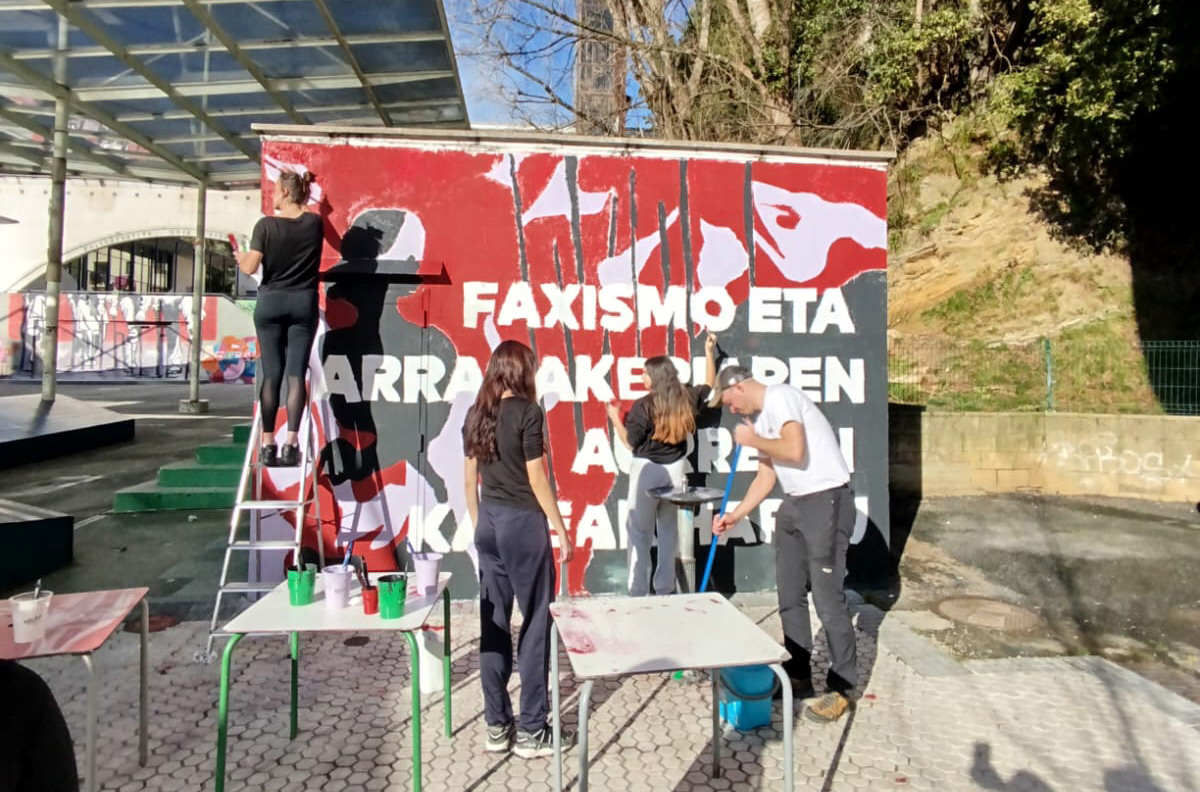
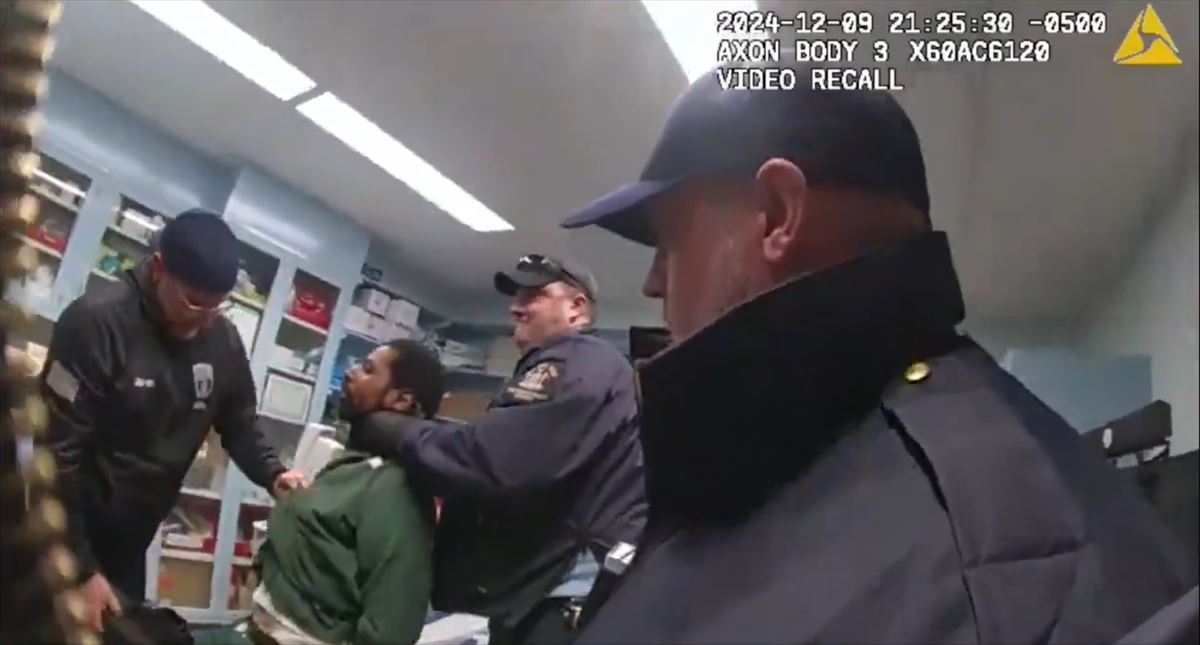
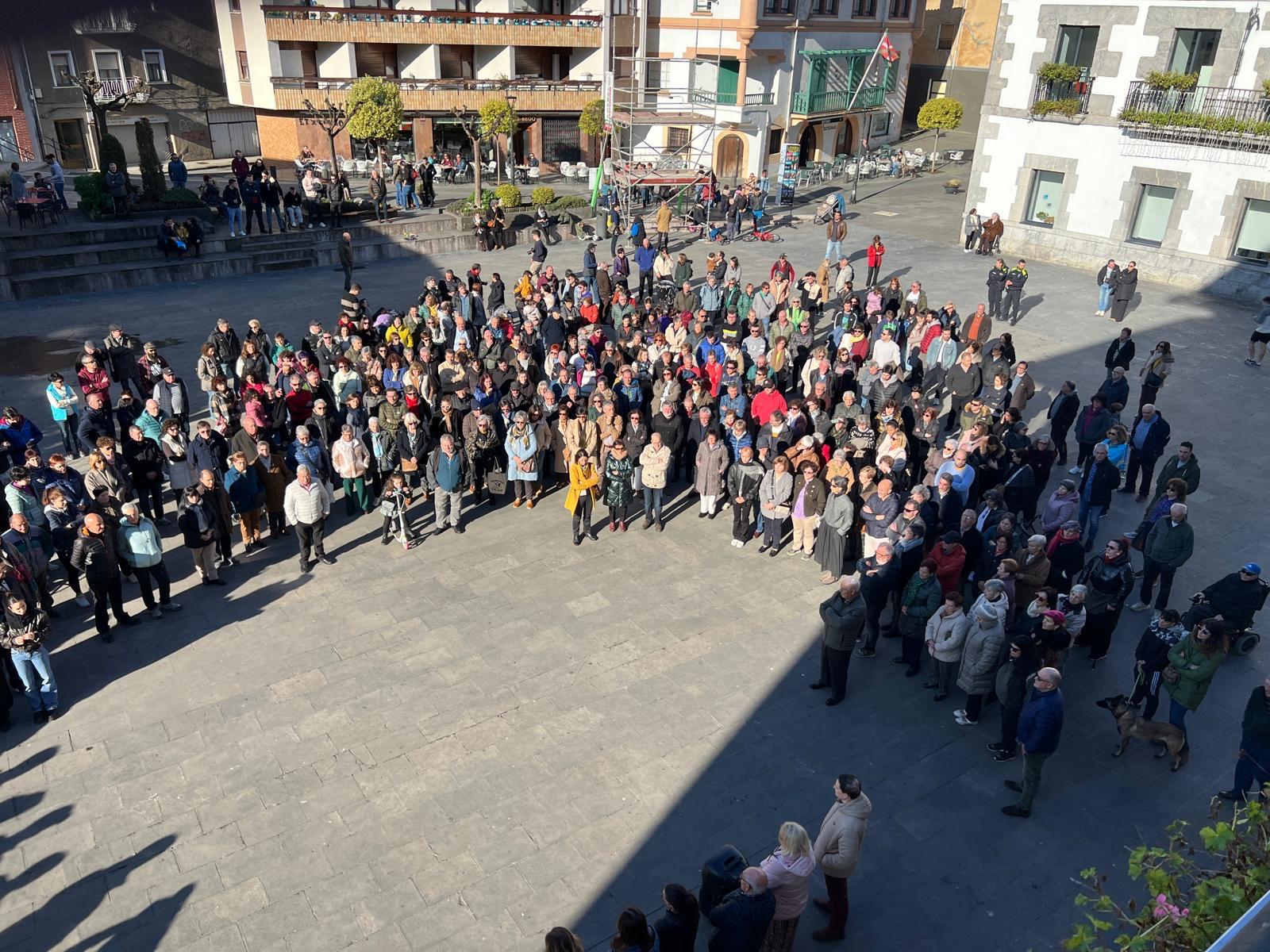

.jpg)





